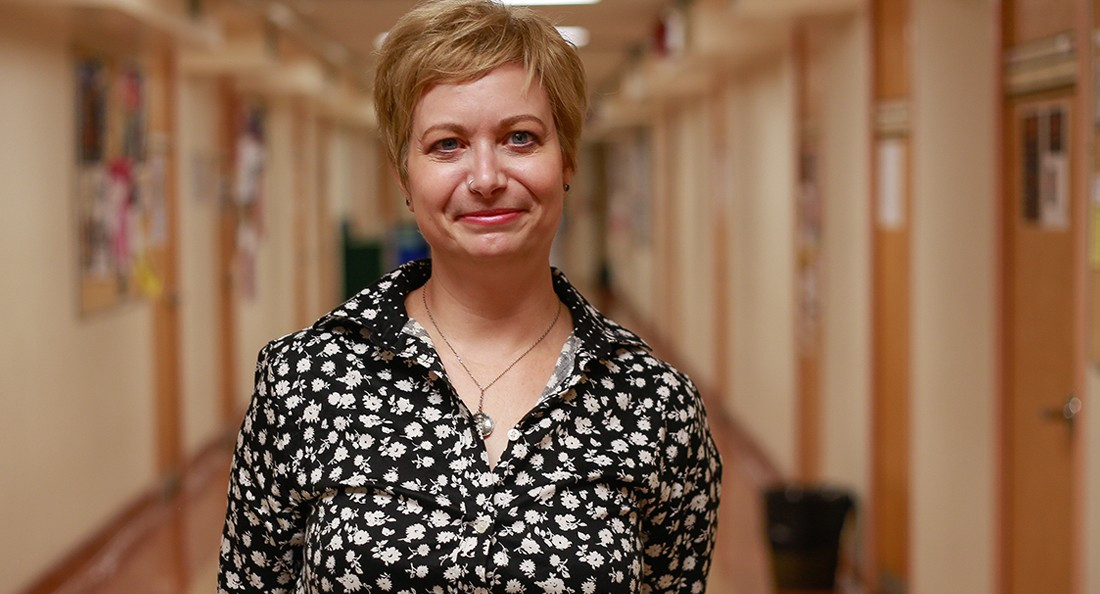PROFile: Heather Snell
Professor, Department of English, University of Winnipeg
Dr. Heather Snell is a professor specializing in post-colonial and cultural studies in the English department at the University of Winnipeg.
While an undergrad at the University of Guelph, Snell noticed a gap in the curriculum to which she “felt it was important to integrate post-colonial voices into, what at that time was a very traditional canon.”
“My introduction to English literature was through major British writers, most of them white and male,” she says.
Dr. Snell is an outdoor enthusiast and enjoys hiking, kayaking and cycling.
As a professor, “you sit all day, reading and writing and even teaching,” she says. “You (could) stand when you teach, but not necessarily all of the time.
“When I’m not doing actual academic work, I like to be very active.”
Her love of the outdoors finds its way into her current work, as Dr. Snell stresses the importance of land and environment in academia, as oftentimes literature, culture and land are intertwined.
She says that “we need to do a lot more than just acknowledge that we are occupying Indigenous lands” in reference to the institutional efforts of decolonization.
“For me, part of that is learning about Indigenous perspectives on land and thinking about that when I’m out on the land,” she says.
“I find that when literary critics focus on land in literature, they often do so in a way that perpetuates this romanticized object, rather than (land as) our relatives.”
Dr. Snell says these topics are interconnected with the crisis of climate change.
“Sometimes I feel like I should focus on local literatures, because when you focus on literature from elsewhere, you then have to go to those places, because otherwise you’re speaking from a place of ignorance, and so I’m flying,” she says.
She notes that in restructuring her research to deal with more local literatures, she can reduce her carbon footprint.
“Academics don’t think of themselves as tourists,” she says. “They think it’s completely legitimate to go to a place (and) parachute in, and they do it for a conference … and that makes them “travellers,” and not tourists.
“Academic tourism is a problem, and I want to address that in my work.”
What is something you’ve learned from your students?
“They teach me to think differently. We all have blind spots because of our particular experiences and our identity. My students have very different experiences of the world, and so I often become very aware of my blind spots through my students, and that’s always a good thing.”
What do you hope to accomplish with your work?
“The work that we do in the humanities, it doesn’t have a direct impact, (but) we hope to make a modest contribution to our field, and we hope that it changes people's thinking.”
What is your favourite book you’ve read recently?
“The book that I just finished that I really really loved a lot was Here Comes the Sun. It’s such a great engagement with tourism and the Caribbean.”
Published in Volume 74, Number 6 of The Uniter (October 10, 2019)







